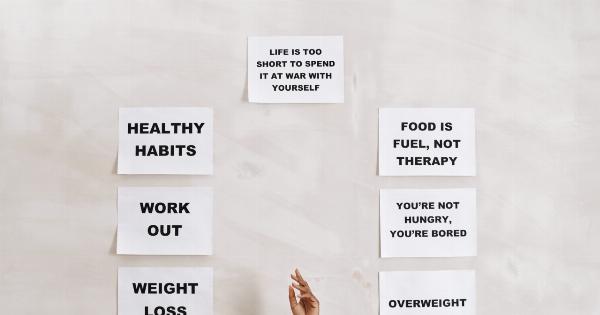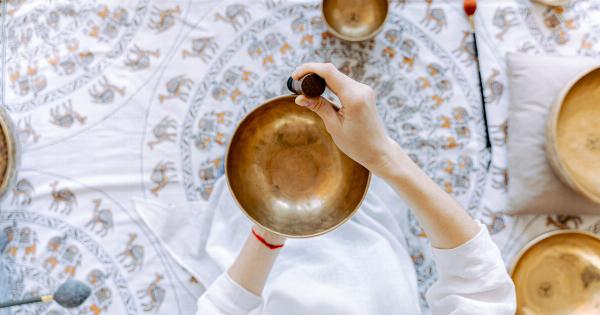Nail biting is a common habit that affects many people around the world. It is not only a way to trim nails but can also be a sign of anxiety, stress, or other underlying psychological factors.
Interestingly, nail biting can also reveal certain aspects of a person’s personality. In this article, we will explore what your nail biting habit might be saying about your personality.
1. Perfectionism
If you find yourself constantly striving for perfection and have an unrelenting desire for things to be flawless, then your nail biting habit may align with this personality trait.
Perfectionists often bite their nails as a way to release stress and anxiety caused by their pursuit of perfection in every aspect of their lives. The act of biting nails provides a temporary sense of control and relief for them.
2. Nervousness
Nail biting is often associated with nervousness or anxiety. People who bite their nails frequently tend to be more on edge and easily stressed. It becomes a way to subconsciously vent their nervous energy.
They might bite their nails during tense situations or when faced with challenging tasks. Nail biting acts as a coping mechanism and helps to alleviate some of the built-up tension.
3. Impatience
Impatient individuals often have difficulty waiting for things and exhibit a sense of restlessness. Nail biting can be a way for them to pass the time or distract themselves when waiting becomes unbearable.
It serves as a temporary relief from their impatience and helps them feel more in control of the situation.
4. Boredom
Biting one’s nails can be a sign of sheer boredom. It is common for individuals who easily get bored or require constant stimulation to resort to nail biting.
They may not even realize they are doing it until their nails are already considerably shorter. Nail biting acts as a way to distract the mind and keep it occupied during idle moments.
5. Self-soothing
Some people bite their nails as a means of self-soothing. It is a way to calm and comfort themselves during moments of distress or anxiety.
These individuals might have difficulty expressing their emotions or seeking support from others, so nail biting becomes their go-to method for finding solace within themselves.
6. Unconventional Thinker
If you are someone who prefers to think outside the box and often challenges traditional norms, your nail biting habit might reflect this aspect of your personality. Unconventional thinkers tend to be more creative and open-minded.
Nail biting, in their case, can be a form of individual expression and rebellion against societal expectations.
7. Low Self-esteem
Individuals with low self-esteem may resort to nail biting as a subconscious way to punish themselves. It can be a result of negative self-perception or feeling inadequate.
Nail biting becomes a physical manifestation of their inner struggles and serves as a reminder of their perceived flaws.
8. Perseverance
Interestingly, nail biting can also indicate perseverance and determination. Some individuals bite their nails as a way to keep going through challenging circumstances.
It symbolizes their unwillingness to give up and represents their continuous efforts to overcome obstacles.
9. Attention to Detail
People who pay great attention to detail and possess meticulous personalities may engage in nail biting. They might find satisfaction in the act of biting their nails, ensuring a clean and neat appearance.
It is a way for them to establish control over their physical appearance and maintain their desired level of perfection.
10. Difficulty Letting Go
Individuals who struggle with letting go of things, both physically and emotionally, may have a nail biting habit. They find comfort in chewing on their nails and find it challenging to free themselves from this seemingly harmless routine.
This habit represents their difficulty in relinquishing control over aspects of their lives.
In Conclusion
Nail biting is not only a common habit but also a subconscious behavior that can reflect various aspects of a person’s personality.
Whether it is a manifestation of stress, perfectionism, impatience, or creativity, understanding the underlying reasons behind this habit can help individuals address their personal challenges and develop healthier coping mechanisms.






























